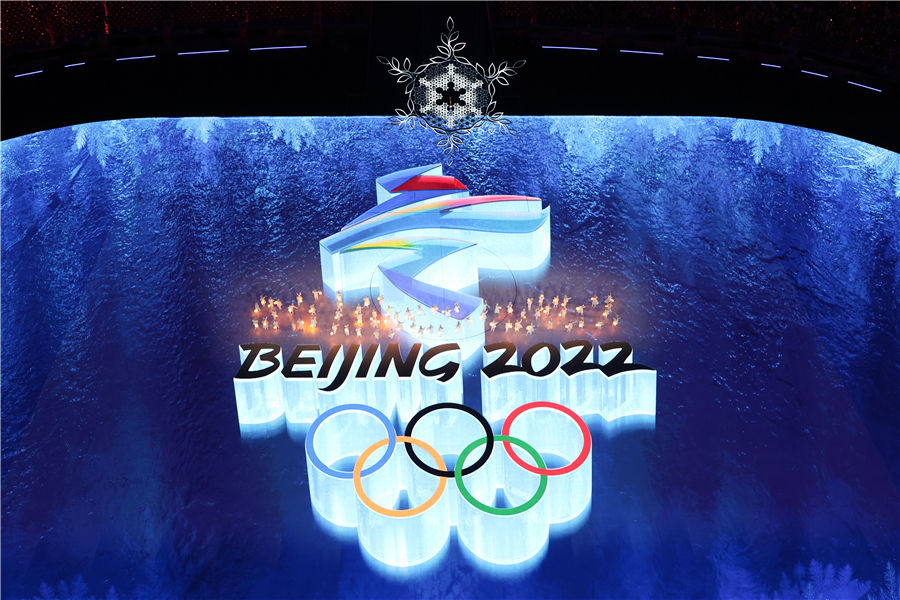IP protection of Beijing 2022 Winter Olympic Games a complete success
By Zhang Can | chinadaily.com.cn | Updated: 2022-02-24 14:35

The Beijing 2022 Winter Olympic Games has come to an end. Having accomplished the promise of delivering a simple, safe and splendid winter sports event to the world, the Beijing 2022 is bound to be engraved in the Olympic history. This Games had many firsts and many stories will be told for generations. Held amid a tense conflict in some regions and the continuous spread of the COVID-19 worldwide, it was not a plain sailing for China to organize such a successful and wonderful Winter Olympic Games.
The Games witnessed the remarkable progress that China has achieved in the winter sports. Just as Thomas Bach, the president of International Olympic Committee, said in an interview that the winter sports will fundamentally change after Beijing 2022 and during his closing ceremony speech he also congratulated China on its becoming of a strong power in the winter sports field.
Apart from how the Olympic spirits were upheld and manifested by the athletes’ outstanding performances and what the Beijing 2022 meant to the development of the whole industry, the intellectual property (IP) sector of the Beijing 2022 also achieved a success as the number of advanced technologies were applied to hold the Games and near-zero major or malicious winter games-related IP infringement occurred during the event. In this sense, the Beijing 2022 also demonstrated that China’s protection abilities have improved unprecedentedly.
IP protection has long been an indispensable part of an Olympic event in the modern times for, generally speaking, the protection of Olympic symbols, such as the emblem, the motto, the mascots, etc. and the broadcasting of the sports games are highly dependent on the IP regime of hosting city. Moreover, the more the ideas of green Olympic and high-tech-based Olympic are stressed in recent years, the more pivotal the role of IP system of the host city can and should play.
The Chinese government has attached great importance to the protection of Olympic-related IP rights, modifying corresponding laws and regulations to improve its enforcement capabilities and earnestly fulfilling its international responsibilities. The authority has revised the Regulations on the Protection of Olympic Symbols in 2018 to further include the symbols concerning the Beijing 2022 Winter Olympic Games and the winter Paralympic Games in its protection scope. The State IP Office publicized the 63 Olympic symbols for protection and promoted timely information disclosure of the Licensees.
During the Games, the phenomenon that it was too difficult to get a Bing Dwen Dwen doll, the cuddly Games mascot, can largely be attributed to the strict enforcement of the Olympic Symbols Protection Regulation and relevant IP laws, because they can only be bought in officially authorized shops and the enthusiasm for the mascot merchandise led to a shortage of products. The topic of “too hard to get a Bing Dwen Dwen” once dominated the searches on Weibo, China’s social media platform, and netizens began to comment from a IP protection point of view, which is considered to be a vivid publication and education on IP protection for all citizens.
In the live-streaming part, this Winter Games actually confronted many challenges. Due to the influence of COVID-19 and related pandemic containing policies, the live broadcasting of the sport games gained more importance than any former Winter Olympics. However, the organizer took many efficient and effective precautionary measures to curb winter games-related online piracy, for instance, to cooperate with the main internet platforms to raise their obligations and to urge them to immediately delete any infringing contents uploaded. According to statistics, major online platforms proactively removed more than 227,000 Beijing 2022-related listings during the Games, which proved the anti-piracy work mechanism a success.
Additionally, the Beijing 2022 was also a high-tech-based and digital engaged winter games than ever. A number of Chinese patented technologies were displayed for the first time, from robot chefs cooking meals for athletes and journalists to innovative ice-making techniques in the Ice Ribbon that assisted players to boost their performances, from self-driving cars shuttling between one sports venue and another to sophisticated high-definition broadcasting technology that creates visual appeal... All these not only guaranteed the delivery of a spectacular Beijing Winter Games, but also been a microcosm of China’s innovation strength and the improvements in its IP utilization and protection abilities.
The author is PhD candidate in law at the University of Chinese Academy of Social Sciences.
The opinions expressed here are those of the writer and do not represent the views of China Daily and China Daily website.
If you have a specific expertise and would like to contribute to China Daily, please contact us at opinion@chinadaily.com.cn , and comment@chinadaily.com.cn
























